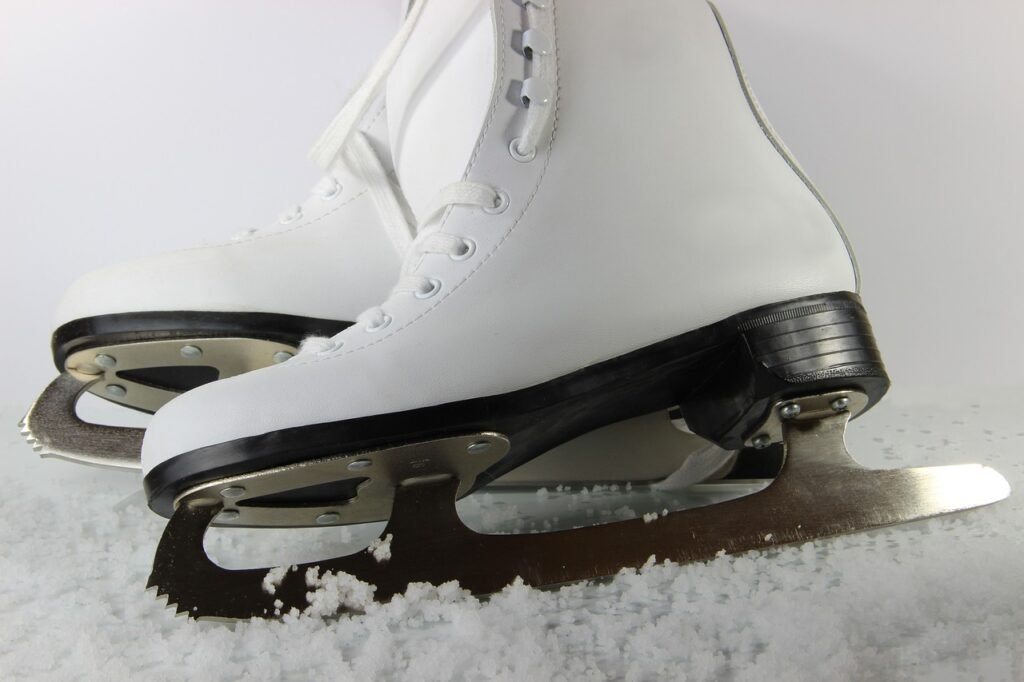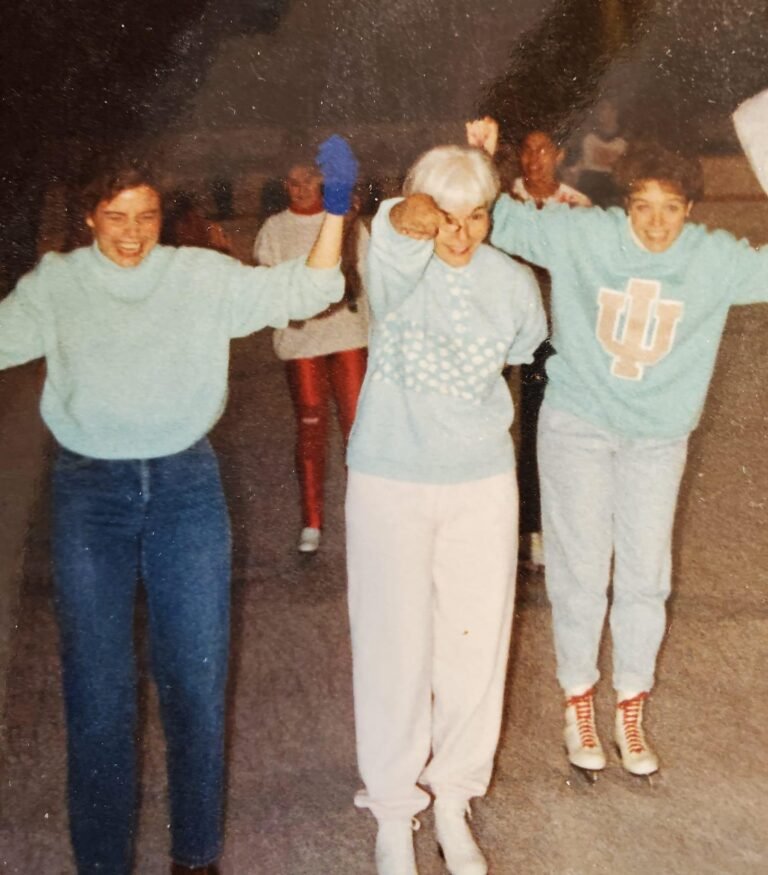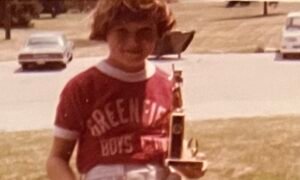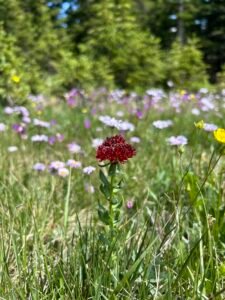Dear Diary,
As I dance around the edges of the “C” word, hoping our broken healthcare system would move a little more quickly, please and thank you, so I don’t have to wonder any more about the painful mass with “ill-defined margins” in my left knee (my gawd, how long does it take to schedule an MRI with contrast??), I’ve been thinking a lot about my sister who died way too soon. Fucking “C” word. Her daughter, my sweet niece, had brain surgery yesterday, and I just keep thinking… when does it end? When do we catch a break? And not just my family—I know so many others who are going through it, too. I guess that’s the price we pay for being citizens of this world—all the beautiful, sacred, heart-wrenching, ruthless parts. As the lovely poet, Maggie Smith, says in her achingly gorgeous Good Bones: “For every bird, there is a stone thrown at a bird. For every loved child, a child broken, bagged, sunk in a lake.” But those are her words. The following are mine. They’re for my sister. And my mom. And all of us. XO
Love, Katrina

~ ~ ~
It was 1979, the year after the movie Ice Castles came out, and I was obsessed. In my nine-year-old heart, there was no song more beautiful than Through the Eyes of Love and no story more inspiring than the blind girl who learned to skate again.
“Please, Mom,” I begged at Christmas time. “You don’t have to get me anything else. The only thing I want for Christmas this year is ice skates.”
“But where do you plan to skate?” she’d asked.
It was a valid question. We lived in a second story apartment building in rural Indiana, and my single mom worked long, hard days to keep hamburger pie on the table. There would be no private lessons, no trips downtown to an ice skating rink. For other young girls, those might have been possibilities, but we didn’t have the extra money, and my mom didn’t have the time for frivolous driving.
“I’ll figure it out,” I said. And she knew I would.
I was a girl who figured things out.
When Christmas morning arrived and there were two shiny new pairs of ice skates under the tree—one for me and one for my big sister, Carrie—I was in heaven. I tied the laces together, carried them on my shoulder, and waited for the temperature to drop. I sang, “Please don’t let this feeling end, it’s everything I am, everything I want to be…” over and over again until my sister finally told me to give it a rest and poked me with the spit-sharpened end of a Jolly Rancher stick.
~ ~ ~
Carrie and I were as different as night and day. Six years my senior, Carrie was quiet, thoughtful, content. She smiled a lot and never questioned her place in this world. She spent most of her days reading Harlequin Romances on the couch. I, on the other hand, was fiery, athletic, and stubborn. I spent my time nailing neighborhood kids with a dodgeball and perfecting my free throws.
“You came out red-faced and red-headed, screaming your arrival into the world,” Mom used to say. “And you’ve been that way ever since.”
I never really understood my sister and the things that interested her, but I loved her with all my heart. I cheered for her when she competed in beauty pageants and enjoyed listening to her sing on stage. She had a sweet, kind soprano that felt like a gentle wind. She took me everywhere with her, even when she was hanging out with her friends.
I’m sure she did from time to time, but I can’t recall ever hearing her complain.
~ ~ ~
When the perfect winter day finally dawned, I could not contain my excitement. It had rained over the weekend, and when Monday came, the temperature plummeted. I could hardly get through Sister Veronica Ann’s religion lesson. I burst through our apartment door at the end of the school day, calling for my sister while I wiggled my way out of my plaid, Catholic school jumper and into my play clothes.
“Carrie! Let’s go skating!”
She laughed at my excitement as she pulled on a second pair of socks. “I knew exactly what you were going to ask for when you got home. Make sure you wear double layers of everything, Trinks!”
We trudged out to the open field that was across the street from our apartment and beyond the playground, warm winter boots on our feet and ice skates slung over our shoulders. I was Lexie from the movie, and my shiny skates knocked gently on my oversized coat with every step. Beyond that overgrown field was another one—a farmer’s cornfield that was frozen over with random cornstalk tops sticking up through the ice. But the rows between the stalks were clear, like racetracks.
“It’s not perfect,” Carrie said, “but it will do for now.”
We sat down on a log and changed from our boots to our skates. The late afternoon air was brittle, and the sun was already making its evening descent. Carrie and I started out shakily at first, but when we finally got the feel of the skates, we raced each other up and down the rows. At the end of the field farthest from our apartment, we found a treasure: A patch of smooth ice where we didn’t have to battle what remained of the summer corn.
“Carrie, look!” I yelled, pointing at the shiny oval in front of us. “It’s almost a pond!”
“Let me go first,” Carrie said. “We don’t know how deep it is, and I want to make sure it’s frozen.”
As the older sister, Carrie was responsible for me when Mom was at work. I wanted to tell her that I was fine, and that I could take care of myself, but I stood back instead to let her have her big-sisterly way. I knew that’s what Mom would have wanted.
She skated into the middle of the smooth ice and turned to wave me out when I heard a sharp crack and watched her lose about two feet of ground.
I stopped in my tracks and called out to her. “Are you okay?”
“Don’t come out here!” she yelled frantically. “It’s not frozen. Stay where you are!”
The water was almost up to her knees, and her brand new skates were fully immersed in the frigid water that lay dangerously in wait under the ice.

~ ~ ~
Our mom had a recurrent dream when we were young. She was skating across a frozen pond, jet black hair glimmering in the sun, when she felt the ice give beneath her. She fell under the hard surface and was unable to find her way back to the hole that would grant her oxygen and life.
I imagined her gorgeous hands splayed out, red fingernails shining, palms against the under-surface of the ice, her mouth in a desperate grimace, calling for help; her beautiful face tinged with blue from the water and the cold.
And I stood safely on the grass beside the pond, watching it all happen, unable to move or think or help or even scream. Paralyzed with fear, the recognition of my mom’s impending death heavy on my shoulders, crushing my heart.
Was this some version of her dream come to pass?
Had we talked about the dream so much that its fruition was inevitable?
Did we make it so by fearing it so?
~ ~ ~
I watched as Carrie lifted her foot high, set it down, and heard the ice crack again. Every step was another crack, and her movement was painfully slow.
Step. Crack. Step. Crack.
I felt like she had barely moved an inch when she yelled, “Go home, Trina! Go now. It’s not safe out here. And it’s getting colder. Go exactly the way we came. I’ll meet you at home.”
“I’m not leaving you here!” I yelled. “Let me come help you!”
“Do not come a step further,” she yelled. “Turn around and go home! Now! And don’t call Mom. I’ll be home before she gets there.”
I hesitated, my teeth chattering, as I watched the sun dip lower, lower. With every inch it fell, I could feel the temperature fall with it. The winter sky turned from deep blue to a frigid charcoal gray.
“We forgot about the flowers.” Robby Benson’s line from Ice Castles ran through my head as I watched my sister battle her way through the icy water, her lips blue with cold. In the movie, Lynn-Holly Johnson is skating around the rink as the crowd cheers. They’re throwing flowers, but she can’t see them because she’s blind. She trips and falls, and Robby Benson runs onto the ice to help her. Should I be running into the icy water to help Carrie? I didn’t know what to do.
We forgot about the flowers, Carrie.
I watched, crying, as she inched her way across the ice, falling through every time she stepped. Her pant legs were soaked, and I knew her feet must be, too. The tears on my face mixed with the snot from my nose and froze into a crusty mess. I was terrified. But I was also nine, and my mom had taught me to obey my sister when she was in charge. My mom and my sister—they were all I had in this world. I could not bear the thought of losing either one of them. My whole world would shatter.
I began to skate home.
When I reached the log where we’d left our boots, I sat down to take off my skates. Without my gloves, my fingers numbed instantly, and I fumbled with the laces. As I stood up to finish walking home, I looked at Carrie’s boots sitting there alone. Did I take them? Did I leave them? I decided she would need them once she reached the log, too, so I walked away and left them.
Just like I’d left Carrie.
The sun had set by the time I reached home, and my face was so cold, I couldn’t feel it. I took my winter clothes off and wrapped myself in a multitude of blankets. I watched as the big hand on the clock ticked the minutes away. It was close to 6:00 PM, and Mom would be home soon. What would I say to her? Why was I sitting alone, safe and warm, while my sister was outside in the dark, freezing? I trembled with fear, crying softly to myself.
If she died, it would be my fault. I left her in the dark to freeze, and I would never be able to forgive myself. What kind of horrible human leaves her sister to die in the night? A frigid, painful, terrifying death brought on by a scared little sister.
When I heard the doorknob turn, I jumped to my feet. It was either Carrie, safe and sound, or it was Mom, who would know what to do.
My sister trudged into the apartment, ice skates frozen to her feet. She wobbled on the ice-covered blades and sat down in the bathroom. Her face was red, chapped, raw, and she could barely move her fingers.
“Fill the tub for me, please, Trina,” she said, her measured voice the calm to my storm. “Not too hot, but warm enough to melt the ice.”
She plunged her feet and legs into the tub and leaned over as the ice chunks floated and then melted into the water.
“Can you help me get them off?” she asked. “My fingers won’t work.”
I unlaced Carrie’s brand new skates and pulled them off her feet and out of the tub. They sat on the bathroom mat, white uppers and red laces soaked, as she undressed herself and sank down into the running water, turning the temperature up, up, up as the bath was cooled by her freezing body. I dried the blades on her skates with a yellow and green daisy-covered towel so they wouldn’t rust; so her Christmas present wouldn’t be ruined.
Ten minutes later, Mom came home.
“Girls,” she called, “I’m home! How was your day?”
“We went ice skating in the field,” Carrie called back. “We’re warming up in the bathroom.”
She gave me a look that let me know I was to keep my mouth shut.
“How were your new skates?” Mom asked.
“Perfect!” I shouted as Carrie shivered in the water.
~ ~ ~
Forty-three years later, while a warm summer wind blew through her window, my sister awoke in the small hours of the night to go to the bathroom. She couldn’t find her way back to her bed, back to her pillow, back to her loving husband. She called Kevin for help, and he gently and safely guided her back to their bedroom.
Three weeks after that, she was diagnosed with glioblastoma, an aggressive and terminal brain cancer.
We’d buried our beloved Mom the year before. After years of battling a number of health issues, including multiple sclerosis, Mom’s body had finally given in. She was 80 when we laid her to rest in the same cemetery she’d taken us to as kids. We’d picnic in the beautiful peace of the place and feed the ducks our leftover sandwich crusts.
The ducks gathered around us as her coffin was placed in the crypt. Descendents of the ducks we’d fed so many years ago, I was sure. Grandducks. Great-grandducks.
~ ~ ~
Carrie and I had grown apart as adults. We had different lives, different interests, different belief systems. Her kids were old enough to babysit my kids, so they didn’t grow up playing together, sharing secrets. My family moved from state to state with my ex-husband’s job while Carrie raised her kids in our hometown of Greenfield, Indiana.
When I came out of the closet after twenty-two years of mixed-gender marriage, she said she’d “pray for me.” I was hoping for something more along the lines of, “I’ll always love you no matter what.” Or, “I’m right here for you.” But instead, she offered her words up to an entity I no longer believed in. We found it tough to see eye-to-eye in our later years. She held tightly to her evangelical Christian beliefs, and I had lost my faith long ago.
But she was still my sister. My only sister. My back-up mother. We had stood side-by-side as our mom’s aging body finally gave way. Our shared grief brought us back together baby step by baby step. But it was too late.
By the time I was able to travel back to Indiana to see her, Carrie was in a rehabilitative center and had lost most of her speech. She laughed and smiled, her dimples as deep and inviting as ever, her brown eyes sparkling, but she couldn’t form true sentences, couldn’t find the right words. She’d try to say something, and frustrated, she’d blow a raspberry instead. She had an angry bruise on her neck from a shunt surgery, and a row of Frankenstein-like staples holding her scalp together. When I spoke to her, she looked around to find my voice, her eyes never completely focusing. Carrie’s best friend, Jan, sang A Bushel and a Peck as we said goodbye, and I waited until I got to the car to let my tears fall.
I didn’t want Carrie to know I was crying. I was supposed to be brave. She’d always wanted me to be brave. She trusted me, so many years ago, to be brave as she stood in that freezing water and sent me home.
The final time I saw Carrie, she was in home hospice, in her own bed. Her daughter’s dogs jumped on her, trying to offer some aggressive love and affection, and she grimaced in pain. She smiled and whispered, “I love you,” as I was leaving, and I knew those were the last words I would ever hear her say.
I wish that my sister and I hadn’t grown apart. I wish I could have stayed her beloved little sister forever. But wishing for that is wishing we’d been different people. I could not go back and change who I was as much as I couldn’t wish away who she was. I was left, instead, with a big gaping hole where my mom and my sister used to reside.
A forever hole.
“Go home, Trina,” I remembered her saying to me decades before. “Go home. And don’t call Mom.”
When I walked out of her house with her “I love you” echoing in my mind, it felt like skating away from her so many years ago. But this time I knew for sure that she would not make it home. She would stay stuck in that field, frozen, trying to make her way out. And I would be waiting alone for both Mom and Carrie to come home, anxiously sitting by the door, listening for the rattle of the lock that would never come.
She died the next day at age 58 and joined our mom in the whatever-comes-next.
And with her, she took the last vestiges of our childhood, the memory of her frozen skates with the red laces a part of me forever. Her boots, long-ago buried in the falling snow in the field where we’d skated, wild and young and free.





